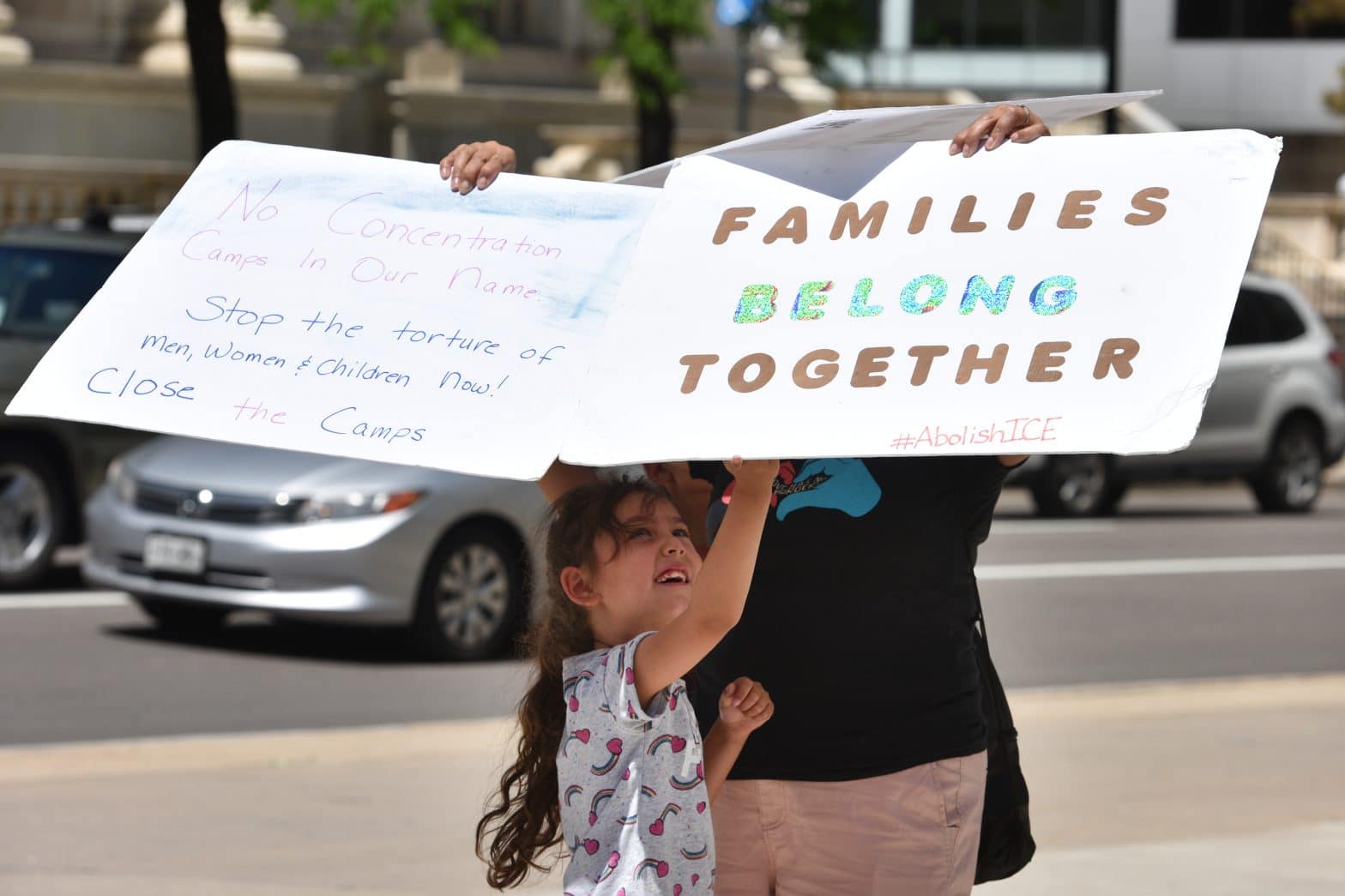When Horrible Things Happen to Other People’s Children
COMMENTARY

Sometimes I worry about the soul of our nation.
Politicians of all stripes go on boastful rants about their “Christian-centered” family values. Meanwhile, horrific orders — to other people’s children — are carried out on their watch.
That’s key. They are other people’s children. And quite often brown children, little ones who don’t speak English. These toddlers are crudely labeled “illegals,” in an upending of immigration law and grammar.
Many highly paid, prominent people capitulated and crumbled as the Trump administration snatched thousands of Central American children away from their parents.
Now, as a nation, we’re fumbling the duty to give them back.
The parents of 545 separated children have not been located, according to a court filing from late October. Most ended up back in Honduras, Guatemala and El Salvador. The children were sent to live in foster care or with relatives in the U.S.
This happened in 2017. Some were infants.
That’s nearly three years without the loving touch or gaze of a parent, a red flag for lasting emotional damage.
Advocates led by the American Civil Liberties Union sued. Under court-order, humanitarian organizations are making herculean efforts to find the parents; combing small Central American villages, dodging the gangs, political corruption and threats to life that helped spur the migration in the first place.
Organizations like Justice in Motion have committed to finding every parent and explaining their legal options, despite being stalled by the pandemic. Often, they only have an outdated phone number or misspelled name as a lead.
The families were the first victims of a pilot project that was later rolled out as “zero tolerance” for migrants who arrived at the U.S.- Mexico border, a humanitarian crisis epic in its proportions.
The rationale for zero tolerance was that if government policy was cruel enough, if people faced losing their children, they might stop coming. It didn’t work because it sought to delegitimize the dire circumstances they were facing at home.
The public’s ire and lawsuits finally prevailed. But only after viewing videos of parentless children crying behind chain link fencing and mounting proof that infants were taken from their still breastfeeding mothers.
Only then, in June of 2018, did the administration cease the madness.
Now, government reports are uncovering how it happened.
The on-going work of the Department of Justice’s Inspector General is detailing who tried to push back, who found excuses and who protected self-interests at the expense of the children.
The New York Times, after viewing a draft of the study, reported that then- Attorney General Jeff Sessions refused to cooperate with the investigation. Others made the “he made me” excuse, insisting they were merely following President Trump’s orders.
The Times reported that five U.S. attorneys along the southern border expressed deep concerns for the plan but were overridden. Then-head of Homeland Security, Kirstjen Nielsen, also initially pushed back.
But this was merely a new chapter in a book of old wrongs. The setup, prior to Trump’s crazed focus on “closing” the southern border, was happening in the countries from which people were fleeing.
“When Fleeing Is Your Only Option,” a report by the Kansas City-based Cross Border Network for Justice & Solidarity, chronicled the background by sending a delegation to Honduras in May of 2019. They probed migrants, government officials, advocates and others to track what fueled migration.
What they found points a finger right back at the U.S. For it was the Obama administration that condoned a 2009 coup. Subsequent turmoil and corruption plagued the country, long an important geopolitical base for our military.
As time went on, poorer Hondurans had fewer options. “They may be victimized by police, army, gangs, and even employers, or they may even have to become criminals to survive,” the report said. “The only other choices available to them are to join the resistance, risking arrest or death—or flee.”
And yet, North Americans take to their soapboxes and ponder why those parents would dare haul children on such a journey.
That’s when they become other people’s children.
A further step paints the helpless child as political commerce, suitable to promote a get-tough strategy on immigration and preach an “America first” babble that draws cheers from the manipulated masses. Those folks likely will march to the voting booth and select Trump as their leader for another four years, ensuring that these lessons won’t be learned much less avoided in the future.
Voters who have taken the time to grasp the details, to accept that under vacuous leadership even good people can be manipulated to cause great harm must stop him. Elections matter.
The safety of someone else’s child, and maybe eventually your own, depends on it.
—
©2020 Mary Sanchez. Distributed by Tribune Content Agency, LLC.























